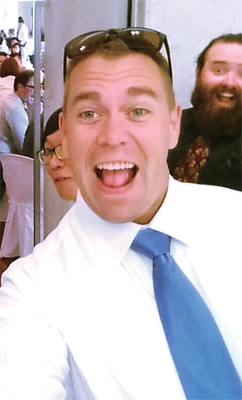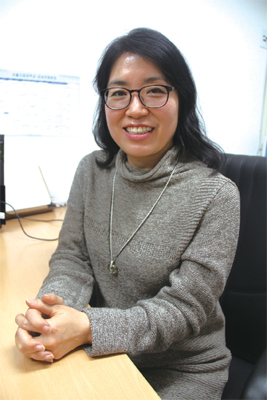In contemporary Korea, there is a significant and unprecedented focus on English education found nowhere else in the world. Contrary to this English fever, a common critique of Korean English education is that many students cannot say even a single sentence correctly, despite having studied English for more than ten years. To make matters worse, the sole purpose of learning English once students enter university becomes getting higher GPA scores, resulting in temporary and unsatisfactory learning. To countless students who were born and raised in Korea, English is a nemesis. In this article, The UOS Times interviewed two professors doing their best to assist UOS students with English learning on campus. This article was written in the hopes of doing something about the endless cycle of impractical English acquisition among university students. To address this issue, we investigated English education and its current infrastructure at the University of Seoul (henceforth, UOS).

With over five years of teaching experience at UOS, Professor Cowell feels that English abilities have improved generally, although not greatly. He sees improvement in students when they are less shocked by foreign teachers than in the past. He feels that more exposure to foreigners not only helps students feel more comfortable in class but improves his teaching as well. His goal is to get the students to speak and interact with each other as much as possible during the class time.
Especially for freshmen students who only have his class once a week, he tries to maximize their participation in a relaxing environment by using a student-centered teaching method instead of a lecture-based one.
Practice Makes Perfect
Professor Cowell believes the most important thing when learning English, as with anything else, is practice. Learning a skill like English takes daily practice and is more effective when done with another person. In that sense, he thinks talking to foreigners and constantly exposing oneself to the language are better in terms of proficiency than spending many hours in the library. he suggested changing the Global Lounge more like the previous S Cafe as a way of practicing. This is one way to encourage more Korean students to experience the English language and culture. The Global Lounge is run by the Institute of International Cooperation and Education (IICE), the same organization that managed the S Cafe. However, it is now run solely by international students, and, due to this, many Korean students tend to be too intimidated to visit. Thus, a lounge or cafe with a friendly atmosphere where students can easily stop by and socialize is necessary. He added that foreign professors would have no problem staying at the cafe for an hour or two to assist visiting students, if only they ask.
Another way to improve one's English skill is to become a risk taker. Korean students, he says, are often too afraid to make mistakes and ask questions. Although getting out of the comfort zone can sometimes be uncomfortable and even frightening, it is necessary to mastering a foreign language He emphasized that UOS students need to “work, practice, and be open-minded.”
Professor Cowell finds a lack of motivation among students to be a bigger problem than the quality or number of courses provided by UOS. Students can always reach out to foreign staff and find classes to satisfy their needs; however, there is no motivation among students to engage in English through these types of lectures.
Currently, the number of applicants for English elective courses is prominently low. Because elective courses can only be held with a minimum of nine or ten students, courses such as English Debate or Discussion often get cancelled due to insufficient enrollment. He understands that there can be many communicative intricacies.
On the other hand, as Professor Cowell points out, in the classroom of a native speaker, Korean students are not only exposed to the language but also the culture that accompanies the language. Language and culture are inextricably intertwined, and that can be a huge benefit to them. It would be wise for students to grasp this opportunity to practice English with foreign professors by enrolling in many electives.

To improve the quality of her lectures, Professor Kim has continued to develop her teaching methodologies over the course of her decade-long teaching career both in and out of Korea. She reflects on every lecture at the end of the day to evaluate how much her students enjoyed it and attempts to discover what worked and what did not. When analyzing courses with a relatively low level of student-participation, she always attempts to figure out her teaching affects student motivation and participation. In particular, she tries to respect students' diverse learning backgrounds and styles and adjust her teaching methods to engage them more in classroom activities. In this sense, she often uses group works in the classroom as a way to make her instruction and key points clearer to students. Aside from these personal efforts to upgrade her English lectures, she thinks UOS can take steps to improve English education even further. She believes technology can play an important role in making classroom instructions more effective. UOS can pay more attention to create a better environment by providing more advanced technology in the classroom.
Finding Motivation
Professor Kim believes that motivation is the most important factor when learning a foreign language. Learning English is not an exception. Having friends whose mother tongue is English can be a motivating factor. In order to become close friends, sharing a common language is crucial. Through this method, Korean students can expose themselves to English in the most natural way possible. One way of making friends would be actively participating in exchange programs organized by the IICE.
Another way is taking elective courses taught in English. Since last year, general English courses have been reduced to three required courses, College English R (Reading), W (Writing), and S (Speaking). Aside from these compulsory courses, UOS offers many other elective general English courses. Professor Kim favors the current system of English education at UOS because it ranges from not only the basics but also to advanced courses that all satisfy the varying needs of students at different proficiency levels. She hopes UOS students can take at least one of them before graduation, since taking classes in English would provide them the best and cheapest motivation for learning English during their time as university students.
Asking for English in Korean
Following the growing trend and demand for foreign professors to teach English at Korean universities, UOS has hired more professors over the years to help students improve their speaking ability. Currently, Korean professors teach College English R and W, and foreign professors focus on teaching College English S. Under these circumstances, Professor Kim thinks there is a crucial role as Korean professors. This is because Korean professors share the same culture with the students and are better prepared to explain certain complicated grammatical rules and serve as successful role models for people learning English.
In addition, they can be more attentive and sensitive to difficulties students encounter which can be overcome and discussed easily because teacher and student share the same native language, Korean.
Moreover, Korean professors can be more empathetic to learner needs and can set realistic learning goals.
We came to the conclusion that UOS students should find their motivation as soon as possible. Whether it be out of personal interest, future employment, or applying for student exchange programs, it is important to realize why we need to learn English. We should bear in mind that reaching out to foreigners and finding opportunities to practice English on campus thorough English elective courses are more effective means to increase proficiency than spending hours sitting in the library reading books. Get selective help from both Korean and foreign English professors at UOS, and practice your English every day to put an end to your feelings of having spent more than 15 years learning English in a meaningless way-it just takes a little more effort.
Jeong Sae-hee Vice Editor-in-Chief
saeheejeong1@uos.ac.kr

